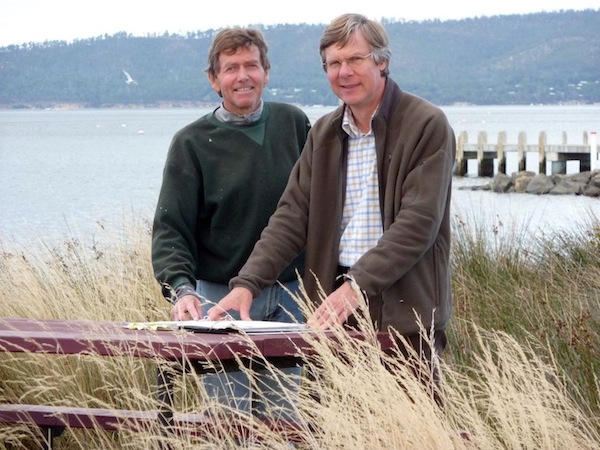With government action on climate falling away, it’s reassuring to see some local initiative to improve the resilience of the vulnerable tourism sector. [11 May 2010 | Peter Boyer]
One of the few things we can say for certain about our changing climate and future oil supplies is that their affects will be felt very unevenly. Some individuals, communities and countries will have a much harder time than others.
We know that just as the physical impact of climate change will vary across the globe, so will the economical implications. Richer societies will be more able than poorer ones to plan ahead and insulate themselves from the worst effects of climate change, but they will feel the greater impact from fuel shortages.
Business people know better than most about inequity and uncertainty. In hard times it’s nice to get a handout from the public purse, but you’d be a mug to base your business on such charity. Much better is to work out where the challenges are likely to come from and try to adjust accordingly.
Tourism is one Tasmanian industry that should feel especially vulnerable. The global travel industry has estimated that it’s responsible for five per cent of greenhouse gas emissions, and has acknowledged the need to address this, but apart from hiccups like a global recession and the odd aircraft-grounding volcano, travel emissions continue to rise.
If people are the travel industry’s biggest concern, transport fuel is a close second. On top of a likely carbon price in coming years is the peak oil factor. Last year, independent analysts were joined by British and US authorities, including the Pentagon, in warning of sharply-rising oil prices over coming years as extracting the black stuff gets more difficult, and therefore more expensive.
In 2008, Gerry White, who with his wife Sue runs a vineyard and cottage accommodation business at Kettering, got together with other tourism operators in the Kingborough-Huon region to take a good hard look at how the sector’s future might be put on a more sustainable footing.
The result was a federally-funded project, instigated and managed by the Huon Valley Kingborough Tourism Association, with the catchy name of Green TEA (for Tourism Environmental Audit), to investigate how the region’s tourism businesses can adapt to a carbon constrained economy and to find efficiencies in energy, water and waste.
Beginning last November with a training session for the region’s tourism operators, the project aimed to help operators discover how they might make their businesses more sustainable through an audit of their environmental, social and economic practices.
Brisbane-based environmental auditing professionals EC3 Global provided the system on which the audit was based, and two training specialists, Narelle Roolker and Tasmanian-based Mike Willson, were retained by the project to work with operators.
From the outset, participants in the project were made aware of the difficulties ahead for all businesses, including constraints on water supply, carbon emissions and landfill, and crucially, big rises (somewhere around 50 per cent) in the cost of electricity.
As the Green TEA report put it, “industry, operators and destinations must act now if they are to be able to face these challenges and respond effectively. Businesses need to find ways to reduce their environmental footprint, including their water usage, waste production and energy usage.”
First-up results for the 40 participating businesses have been modest (a saving of 104 tonnes of carbon, or 24 fewer cars on roads), but the more notable outcome has been participants’ greater awareness about how leaving a smaller footprint benefits both their business and themselves.
Treading lightly, as Mike Willson said, involves making an extra effort to use energy and resources more efficiently, such as recycling rather than dumping. The benefits to business are not always obvious except in energy bills, which in some cases were cut by over 30 per cent.
There are other benefits to participating businesses. As members of a local cluster of environmentally-certified businesses, they have opportunities to access group discounts, technology trials and national accreditation grants, and the chance to be promoted as a best practice case study at the local, state, national and possibly even international level.
Huon and Kingborough operators wanting to be recognised for their environmental performance will be offered a simplified, low cost entry level stage for Green TEA which will include agreement to a sustainability code of conduct and completion of a sustainability checklist. Once this is done, they can obtain support from a trained mentor.
This is a small beginning with much more to be done. For instance, rising cost and scarcity of transport fuel will have a big impact on tour operators everywhere, and there is much more work to be done to prepare for this. But at least the Green TEA participants now understand that energy is a finite commodity needing careful management.
The Green TEA team has received support from operators and tourism organisations in Northern Tasmania, the Cradle Coast Region and other touring routes in southern Tasmania, and has applied to the Tasmanian Climate Change Office to take its concept to these regions.
Its success has attracted interest well beyond Tasmania. An official Japanese tourism delegation visited the state last year to observe the program at work, and decided to use its methodologies on its own turf.
While Green TEA received government funding, it was instigated by Kingborough and Huon business people. With political leadership in such short supply, it’s heartening to see local businesses acting on their own initiative. From small beginnings, big things can happen.

